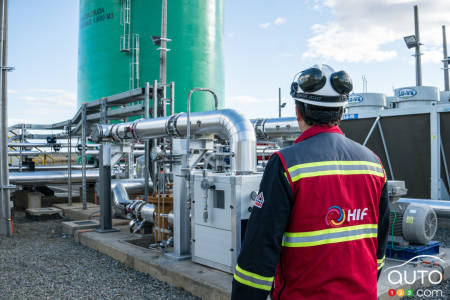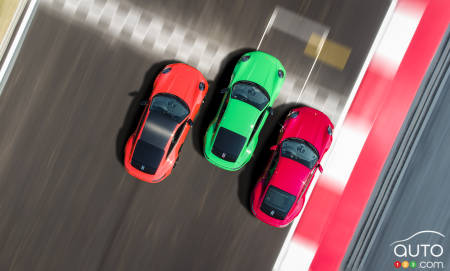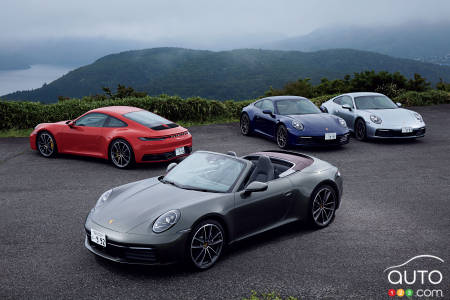• Porsche wants to keep its 911 running on gasoline for as long as possible.
Porsche has been clear about its commitment to electrification. We've already seen the Taycan sedan, and other models will follow, including battery-powered versions of the 718 Boxster and 718 Cayman, as well as of the Macan and Cayenne SUVs.
By 2030, the company aims to have 80 percent of its sales generated by electric models.
But there’s an asterisk next to the name of one Porsche model: the legendary 911. That model will remain gasoline-powered for as long as possible, and it will remain the only model of its kind across the range. So says Karl Dums, head of the team working on synthetic fuels at Porsche.
The 911 accounted for 13 percent of the automaker's sales in 2022.
The German carmaker's plans are being closely watched by many, including environmental movements, because of the company's investments in alternative fuels, but also because of its efforts with the European Union to get the latter to allow the sale of vehicles powered by this new type of gasoline after 2035.
Porsche is seen as closely associated with e-fuels due to its $75 million investment in Chilean company HIF Global, which is already producing synthetic fuel at its pilot plant in Punta Arenas, Chile.
“Our strategy in the first place is switching to electric mobility and ... we will produce the 911 as long as possible with a combustion engine,” said Dums. Porsche's plans for electric vehicles and investments in alternative fuels are separate, he explained.
E-fuel is made from captured carbon dioxide and renewably produced hydrogen. When it burns, it re-emits CO2, which, according to its advocates, makes it carbon neutral.

HIF Global's e-fuel is aimed more at the aviation industry and heavy-duty vehicles, especially since virtually all passenger vehicles will eventually be all-electric, added Kark Dums.
Automotive and business experts agree that synthetic fuels of this kind will only be used with niche and high-end models. The major automakers will probably avoid creating new gasoline-powered models after 2035, as they have already devoted colossal sums to electrification.
Like Porsche, Ferrari has lobbied for a European Union exemption for synthetic fuels. Ferrari also says it expects 80 percent of its models will be electric or hybrid by 2030.
Let's face it, it's hard to imagine a company like Ferrari stopping making gasoline engines. It's not Ferrari anymore, in fact, without this type of powertrain. The 911 won't be the same, either, if it has to give up the ICE.

Many smaller manufacturers are also keen to sell luxury, high-performance models running on carbon-neutral petrol to customers wealthy enough to afford this expensive fuel. Today, it can cost up to $15 CAD per litre.
We'll be keeping a close eye on this issue of synthetic fuels.




